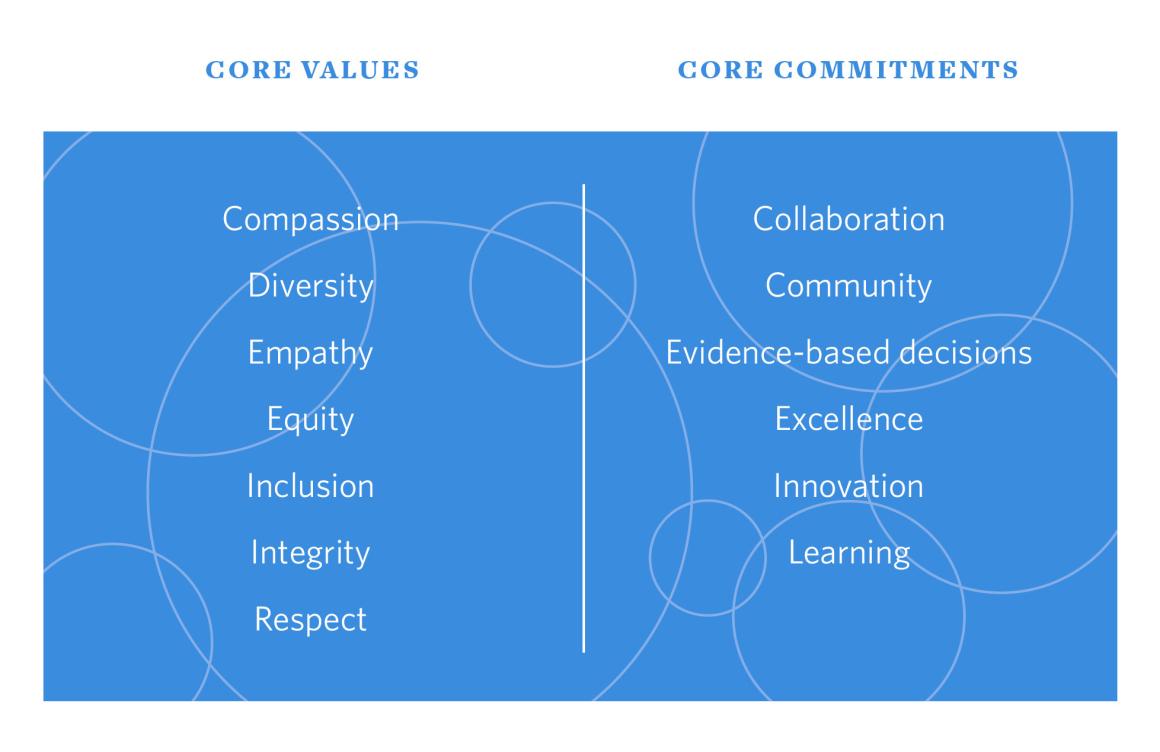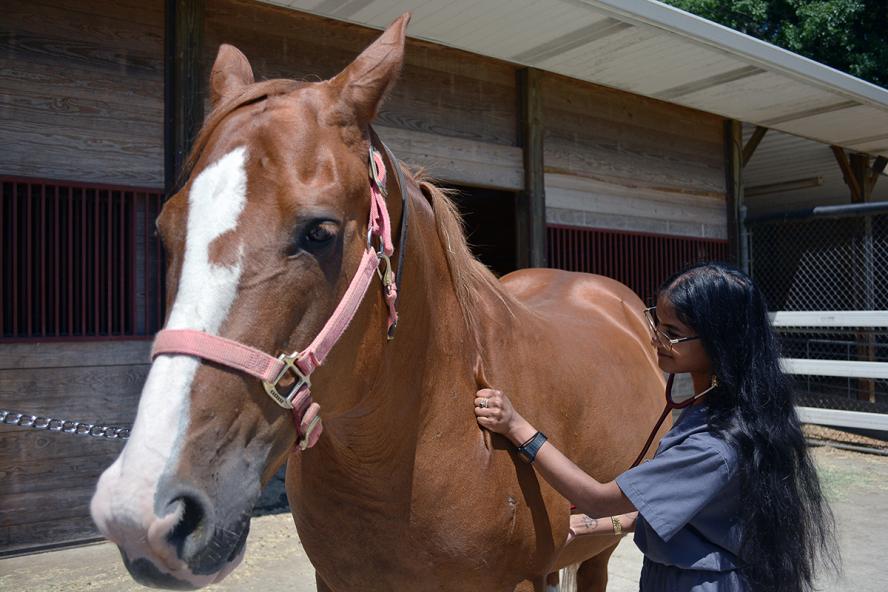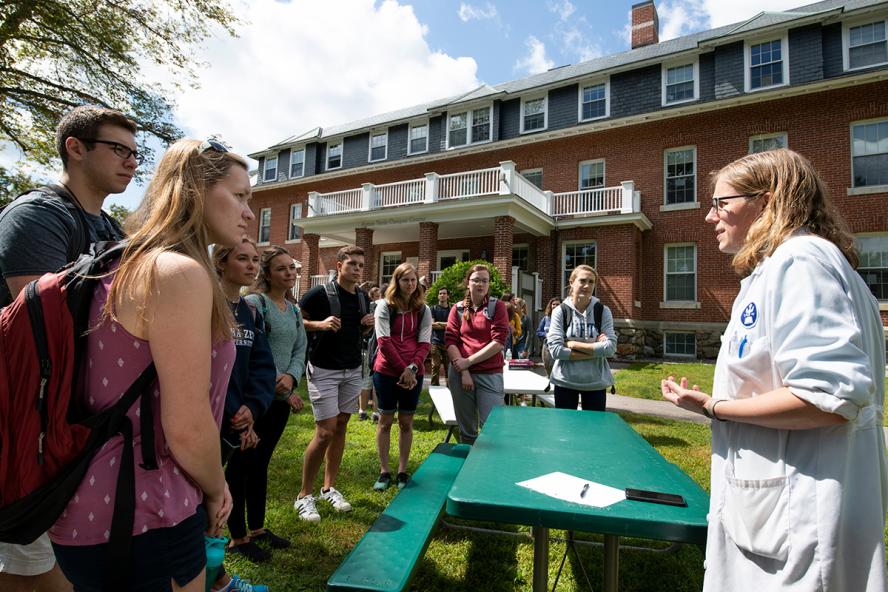-
About
- Leadership & Faculty
- News & Events
-
Admissions
-
Academics
- Graduate
- Advanced Clinical Training
- Continuing Education
- Academic Departments
- Academic Offices
- Simulation Experiences
-
Student Life
- Offices
-
Research
-
- Transformative Research
- Centers & Shared Resources
-
-
Hospitals & Clinics
- Emergency Care
- Hospital Services
-
Community Outreach
- Volunteer
Strategic Vision 2030
Cummings School of Veterinary Medicine has always welcomed those invested in the health of animals and people. We strive to provide an environment where our community can collaborate on academic, clinical, and research challenges to make our world a better place. With the input from our faculty, students, staff, and alumni, our Strategic Vision 2030 carries on this vision.
Vision
Together we advance the health and well-being of animals and people in our changing world.
As Cummings School of Veterinary Medicine approaches its 50th year, we look ahead to the challenges that the veterinary profession, animal populations, and society face. Conceived as a meeting place for those concerned with the health of animals and people, Cummings School launched with an innovative approach to education and a commitment to engagement with the communities we serve. We continue that vision – through collaboration and engagement. Our vision is not just to educate students, but to help them develop the skills, knowledge, and connections they need to make a difference. Our vision is not just to make discoveries and create innovations, but to apply them to the cause of advancing the health and well-being of individuals, groups, and populations. Our vision commits us to recognizing, responding, and caring for the changing ecosystems and environments in our world. That is why together we advance the health and well-being of animals and people in our changing world. Healing animals, helping humans, and changing lives through our education, research, clinical care, and service missions, we will make a difference.
Mission
Cummings School of Veterinary Medicine serves Massachusetts, New England and beyond by providing outstanding veterinary and graduate education that prepares students to excel in diverse careers; by developing and delivering innovative, state-of-the-art veterinary care for domestic and wild animals; by discovering and applying new knowledge and innovations that help achieve health and well-being for all species; and by fostering a diverse, equitable, and inclusive community and profession.
Strategic Vision 2030 Goals
Exceptional Education
Cummings School will be a dynamic learning environment providing accessible education that prepares students and advanced trainees to collectively have a profound impact in veterinary medicine and One Health.
Extraordinary Clinical Care
Cummings School will operate a premier group of academic veterinary hospitals and clinics, providing extraordinary care, leading clinical research and innovation, and an outstanding environment for veterinary education.
Transformative Research
Cummings School will be a global leader in advancing animal and human health through basic, clinical, and field research in a changing world.
Sustainable Culture
Cummings School will be a diverse, equitable, and inclusive community that attracts and retains exceptional faculty, staff, and students. Everyone is appreciated, supported, and valued as they grow and thrive.
Strategic Vision 2030 Steering Committee
Elizabeth Byrnes, Ph.D., Professor
Alastair Cribb, D.V.M., Ph.D., FCAHS, Dean, Henry and Lois Foster Professor
Armelle de Laforcade, D.V.M., DACVECC, Associate Professor
Michael Kowaleski, D.V.M., DACVS, Professor
Cheryl London, D.V.M., Ph.D., DACVIM, Associate Dean for Research and Graduate Education, Anne Engen and Dusty Professorship in Comparative Oncology
Michael Santasieri, B.S., C.V.T., FFCP (Veterinary), Hospital Technician Development Coordinator
Patrick Skelly, Ph.D., Professor
Rebekah Strasburger, Director of Development (former)


